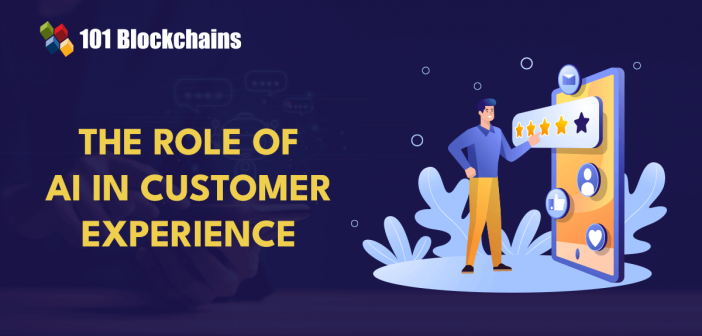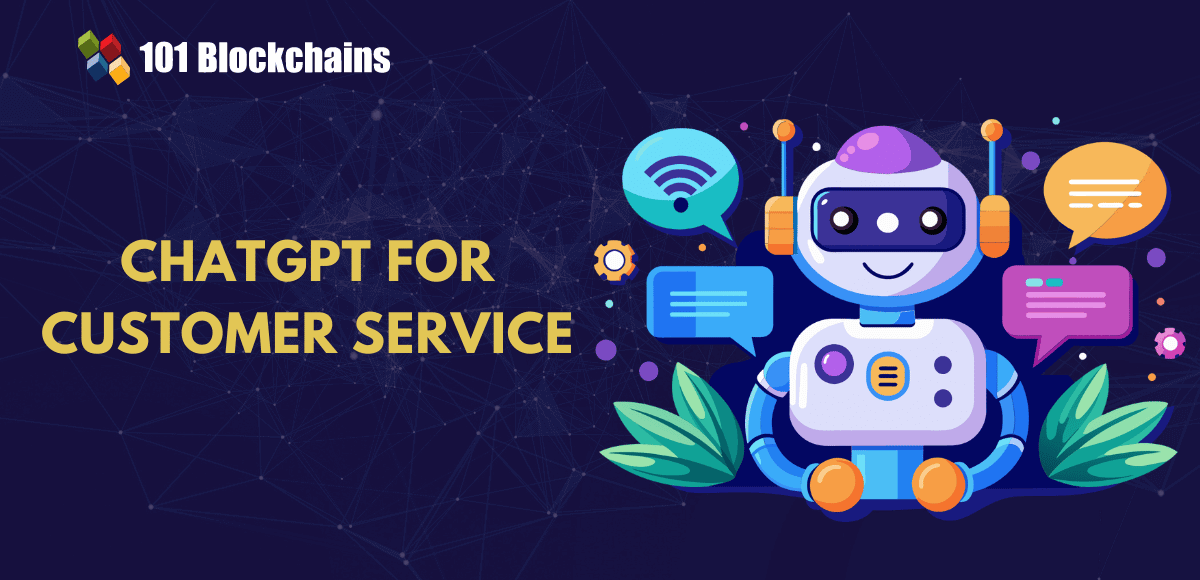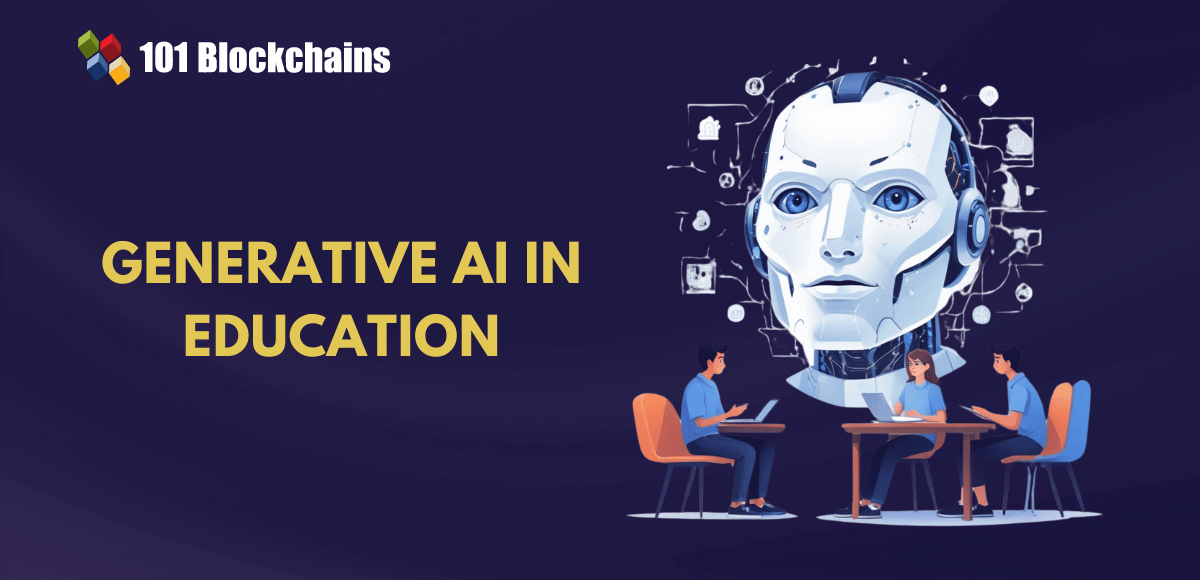Almost every business leader in the world knows the potential of artificial intelligence. One of the most crucial value advantages of AI is the introduction of personalization and better efficiency. AI can help in improving interactions at all stages of the customer journey. According to reports on customer experience trends, almost 57% of business leaders want to increase their investment in AI by almost 25% in the next year.
Can AI improve customer experience according to the expectations of industry experts? The three core elements of customer satisfaction include personalization, responsiveness, and speed. Artificial intelligence can help in improving all these elements, thereby shaping new definitions for customer experience. However, it is important to understand how AI would set new benchmarks in customer experience improvements. Let us find more insights on the potential impact of AI on customer experience in 2024.
What is AI Customer Experience?
The first thing you need to understand the best ways to implement AI to improve customer experience is the definition of AI customer experience. AI customer experience is the use of AI technologies for augmentation of customer interactions and streamlining business operations.
The uses of artificial intelligence to improve customer experience focus on ultimately improving overall customer satisfaction. Some of the notable AI technologies used for improving customer satisfaction include natural language processing and robotic process automation. In addition, predictive analytics can also help empower the use of AI to enhance customer experiences.
Artificial intelligence can offer highly personalized customer experiences by navigating through massive volumes of customer data. The common customer data points used in AI systems for improving customer experience include social media behavior, browsing patterns, and purchase history.
With the potential for accurate and in-depth analysis of customer data, businesses can use AI to determine individual customer preferences. As a result, businesses can leverage AI systems to optimize their customer interactions and product recommendations to meet the specific preferences and needs of customers.
Take your first step towards learning about artificial intelligence through AI Flashcards
Is AI Really Important for Customer Experience?
Yes, artificial intelligence is a vital tool for transforming customer experience. Insights from a recent study by McKinsey on the use of AI in customer service revealed some valuable points about the implementation of AI customer experience. The report pointed out that AI-based customer service can be categorized into five different levels based on the type of engagement. At higher levels, artificial intelligence helps empower efficient and proactive engagement in better service channels alongside providing better predictive intent recognition.
The report also highlighted that advanced companies, particularly in digitally-native industries, are closer to advanced levels of AI integration. On top of it, the report also points out the significance of the human element in driving AI-based services. It suggests that AI-powered customer experience would not replace the human elements completely with automation. On the contrary, the reports show that AI could offer real-time support to employees in delivering better outcomes and anticipating customer needs.
Enroll now in AI For Business Course to learn all about the transformative impact of AI on businesses.
Examples of AI in Customer Service
Artificial intelligence is a major force of change for customer service and could serve as a catalyst for business growth. However, it is important to learn about AI customer experience examples to unravel the significance of artificial intelligence for modern businesses. Here is a look at some of the top examples to show how AI has revolutionized customer experience for top brands.
-
Amazon

Amazon presents one of the best and most comprehensive examples of artificial intelligence in customer service improvement. Amazon’s AI-powered product recommendation system analyzes different data points such as purchase history, purchases by other customers, customer behavior, and items in shopping carts. The advantage of personalization is that it helps improve the shopping experience of customers, thereby boosting Amazon’s sales.
-
Sephora

The Virtual Artist app works by scanning the face of the customer and helps visualize how different cosmetic products would work on their skin. With the Virtual Artist app, customers of Sephora could make better decisions while experiencing an interactive way of online shopping.
-
Starbucks

Deep Brew leverages predictive analytics and machine learning for personalization of marketing messages and driving loyalty. On top of it, the AI-powered app also supports management of store-level inventory. The app could suggest menu items according to the customer’s past orders, time of the day, location, and weather.
Decoding the Impact of Artificial Intelligence on Customer Experience
The examples of implementation of artificial intelligence to improve customer experience show that big brands have been successful in using AI to enhance customer experience. However, it is important to have a clear impression of the different ways in which AI affects customer experience in real use cases. Here is an outline of the different ways in which artificial intelligence can improve customer experience.
-
Personalized Recommendation
Artificial intelligence utilizes machine learning algorithms for analysis of past behavior, preferences, and interests of customers. Most of the AI customer service examples point to the ways in which artificial intelligence helps in generating personalized recommendations. AI can support the identification of patterns in purchasing behavior and product preferences to come up with personalized product recommendations.
For example, if a customer purchases cosmetic products from a specific brand, then AI systems could recommend other products from the same brand to the customer. AI-powered product recommendation systems can not only improve the customer experience but also enhance the chances of sales conversions.
-
Chatbots and Self-Service
AI chatbots and surveys by AI-powered systems can help companies with seamless collection of data on customer experience and their feedback. Chatbots serve as the best examples of artificial intelligence in customer service as they can help answer customer queries, provide relevant information, and resolve simple issues.
AI-powered chatbots could help customers solve their problems independently without the restrictions of time, thereby easing the burden on support teams. As bots handle simple and frequently asked questions, customer support executives could find the time for resolution of complex issues.
On top of that, chatbots have a faster response time, which reduces the wait time for customers. Chatbots could also manage large volumes of queries without involvement of human agents, thereby ensuring efficient and faster resolution of customer queries.
-
Voice Assistants and NLP Utility
Voice assistants have become an important highlight in the modern technological landscape. Some of the popular examples, such as Alexa, Google Assistant, and Siri, have proved how they can change the interactions between humans and machines. The working mechanisms of voice assistants involve the use of Natural Language Processing or NLP capabilities with AI for understanding and responding to voice commands.
The voice assistants can respond to questions, place orders for customers, and also control other devices on your command. Voice assistants can leverage the power of AI to offer personalized assistance according to the history and preferences of users.
-
Predictive Analytics for Better Customer Service
Another interesting addition among the answers to ‘How does AI benefit customers?’ draws references to the use of predictive analytics. Artificial intelligence has the ability to analyze large volumes of data that can help in predicting future customer behavior.
AI can help identify the common questions customers expect and the problems they can encounter based on their behavior and usage patterns. Businesses can ensure proactive resolution of customer issues and offer additional support to customers, thereby enhancing the experience of customers with the brand.
-
Sentiment Analysis
The benefits of personalization with AI for improving customer experience also extend beyond product recommendations. You could find the best uses of artificial intelligence to improve customer experience through the effective implementation of sentiment analysis. Artificial intelligence could evaluate text from different sources, such as customer reviews, social media posts, and emails.
It can generate an accurate impression of the sentiment underlying the different words of customers. As a result, businesses can easily understand customers’ perceptions of their products or services. Subsequently, businesses can identify different areas for improving customer experience.
-
Effective Customer Segmentation
Artificial intelligence can also help in improving customer experience through effective customer segmentation. The ways in which AI improve customer experience through customer segmentation also provide a glimpse of personalization through AI. Artificial intelligence can help with analysis of customer data for creating detailed customer segments according to behavior, preferences, and demographics.
As a result, businesses could deliver personalized experiences to customers and improve outcomes in terms of marketing and sales. For example, businesses could deliver targeted marketing campaigns alongside improving the relevance of brand messages for the target audience.
-
Advanced Analytics
Businesses can also leverage artificial intelligence for advanced analytics. The right AI algorithms could dig through massive volumes of customer data to find patterns and valuable insights that might not be visible to the human eye. You can find AI customer experience examples with advanced analytics useful for identification of customer requirements.
Advanced analytics can also help anticipate the future needs of customers and improve customer experiences. The use of AI to enhance customer experience also helps deal with the potential risks related to generative AI. For example, generative AI can come across risks such as unintended bias, misleading outputs, and privacy infringements. With the help of advanced analytics, artificial intelligence can support comprehensive monitoring and compliance with important ethical considerations.
Identify new ways to leverage the full potential of generative AI in business use cases and become an expert in generative AI technologies with Generative AI Skill Path
Unraveling the Future of AI for Improving Customer Experience
The use cases of AI to enhance customer experience would move beyond the existing applications. With the power of AI, businesses can explore broader horizons for improving customer experience. Here are some of the notable ways in which artificial intelligence can enhance customer experience in the future.
-
Immersive Experiences
The review of the examples of artificial intelligence in customer service shows how AI apps use augmented reality to improve customer experience. However, innovative advancements in AR and VR could serve as major tools for offering immersive customer experiences.
For example, customers can try new clothes on their digital avatars in a VR environment before purchasing them. The integration of AR and VR with artificial intelligence would redefine the ways in which customers would interact with different businesses.
-
Quantum Computing
AI is a powerful entity right now and can process massive volumes of data to obtain relevant insights. However, the use of AI in customer service would get better with the help of quantum computing. Quantum computing can help improve AI’s speed in processing customer data and making valuable predictions. It would open the doors for real-time personalization alongside offering instant responses to all customers’ actions.
-
Ethics and Transparency in AI
The future of AI in the domain of customer experience improvements also focuses on the rise of ethics and transparency in AI. Customers could understand how AI systems work and process their data to make decisions. As a result, customers are more likely to trust AI-based customer experiences.
Enroll now in the Ethics of Artificial Intelligence (AI) Course to understand the importance of ethics in AI, ethical frameworks, principles, and challenges.
Final Words
The review of answers to “How does AI benefit customers?” suggests that artificial intelligence has a major role in personalization. Artificial intelligence can evaluate massive volumes of data about customers, including their behavior, preferences, and purchasing history. It can help generate personalized product recommendations and offer customer service according to customers’ requirements.
Top brands such as Amazon and Starbucks have successfully utilized artificial intelligence to improve customer experience. On top of it, the future of AI use cases to improve customer experience would revolve around new advancements such as quantum computing and transparency. Learn more about the use cases of artificial intelligence and the best practices to leverage it to improve customer experiences right now.








